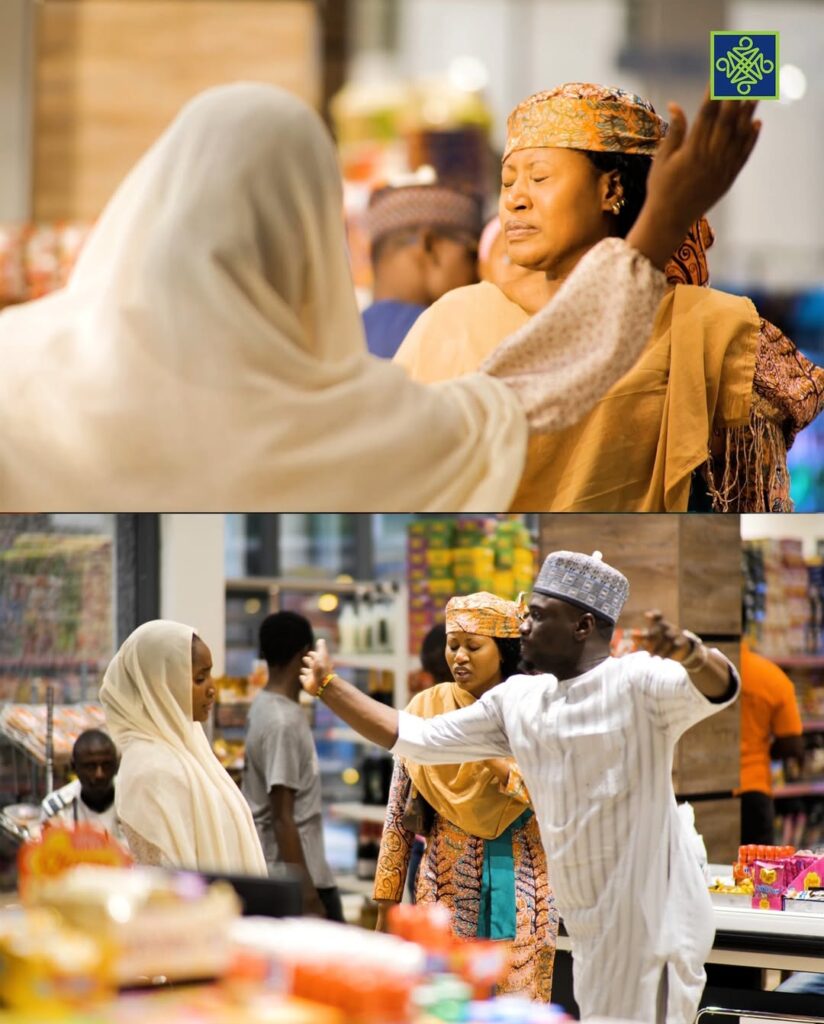Introduction: How It All Started for Me
You know how some people drink tea in the morning? Me, I scroll through Hausa entertainment gossip on Facebook and TikTok before breakfast. Don’t judge me — it’s part of the job.
I remember one Saturday morning in Kano, 2022. I was supposed to be writing a review for Hamisu Breaker’s new track, but instead, I got stuck on a Facebook live where two Kannywood singers were dragging each other. Not small dragging o — voice notes, shady captions, indirect diss lyrics. Fans were tagging blogs left and right. Before I knew it, my tea was cold, my bread was stale, and I was knee-deep in a “media beef” rabbit hole.
That’s when it hit me: media beefs among Hausa artists are not just random drama — they are shaping the industry. But are they good or bad? Let’s gist.

1. The Entertainment Factor — Free Hype or Fake Noise?
Let’s be honest — Nigerians love drama. Especially when it’s between celebrities. When Salim Smart and another upcoming artist started subbing each other on Instagram last year, their streaming numbers jumped in days.
Pros: Free publicity. Fans who didn’t know them before suddenly cared.
Cons: The focus shifts from the music to the quarrel. If the songs don’t back up the hype, it fizzles fast.
As one fan from Kaduna told me:
“Na no go lie, I follow them for the gbas-gbos. But if the song no sweet, I no dey waste my data.”
2. Historical Roots — Beefs Didn’t Start Today
Back in the early Kannywood music days, artists didn’t have Instagram Live to air their issues. Disputes happened behind closed doors or through subtle lyrical jabs. Now, social media has made every small wahala public, and it spreads like wildfire.
In a way, this is just the modern version of competitive banter that has existed for centuries in Hausa praise-singing culture.
3. Fan Reactions — The Double-Edged Sword
Fans fuel beefs — sometimes more than the artists themselves. I’ve seen fans misinterpret a harmless lyric as a diss, and before you know it, hashtags are flying.
Let’s assume a scenario:
Imagine Ali Makaho drops a line like “Ba duk mawaki ne ya san rera waka ba” (“Not every singer knows how to truly sing”). His fans defend him. Another artist’s fans feel attacked. Boom — beef.
Lesson: Sometimes the artists are just pawns in a bigger fan-driven game.
4. Industry Impact — Collaboration or Division?
Media beefs can kill potential collaborations. Two artists who might have dropped a hit together could end up ignoring each other for years. On the flip side, some beefs push artists to outdo each other creatively — giving us better music.
For example, in 2023, two Northern rappers had an online war that ended up producing back-to-back diss tracks — both of which topped Arewa streaming charts.
5. Cultural Significance — Reputation Matters in Hausa Society
Unlike in some Western industries where beef is almost a marketing strategy, in Hausa culture, public disrespect can damage an artist’s reputation permanently. Elders, religious leaders, and conservative fans don’t always take it as “entertainment.”
An Arewa music promoter I spoke with put it perfectly:
“For here, beef fit sell today, but tomorrow, e fit spoil your name. This culture no dey forget.”
6. Production Styles & Lyrical Themes in Beefs
Hausa beef tracks often have a sharper, more aggressive beat than regular love songs. Producers like Bravo Master and Alees Beats know how to lace an instrumental that can carry “subtle insult energy.” Lyrically, artists sprinkle in coded references that only die-hard fans will catch — which makes the whole thing more engaging.
7. The “Gidan Fame” Clash
In 2024, two artists — Khabzee and Maryam Queen — both signed under the same label, started throwing shades online after a delayed project release. Fans took sides, TikTok dance challenges split in two camps, and the label’s YouTube channel doubled its subscribers in three weeks.
But here’s the twist: months later, when they finally dropped a joint single, it flopped. Why? People had moved on from the drama, and the song couldn’t match the hype.
Actionable Insights / Takeaways
- Drama sells, but music sustains careers.
- Know your audience. Hausa fans value respect as much as entertainment.
- If you must beef, let it push you to make better music.
- Labels should manage conflicts wisely to avoid long-term brand damage.
FAQs
What causes most media beefs among Hausa artists?
Misunderstandings, fan pressure, competition for shows, and social media misinterpretations.
Do beefs help artists gain followers?
Yes, short-term. But if the music doesn’t match the hype, followers lose interest.
Is beef common in Hausa music compared to other Nigerian genres?
Less common, but when it happens, it trends fast because the community is tightly knit.
Can beefs be staged for publicity?
Absolutely — some artists have admitted to faking beefs for hype.
What’s the best way to handle a beef?
Address issues privately, keep it respectful publicly, and focus on making good music.
Final Thoughts & Call-to-Action
At the end of the day, media beefs among Hausa artists can be both a blessing and a curse. If handled with maturity, they can spice up the scene and push creativity. But if left unchecked, they can divide fans and ruin reputations.
So, what do you think — are these beefs helping or hurting the industry? Drop your opinion in the comments, share this with your friends, and tag us in your favorite Hausa music beef moments.